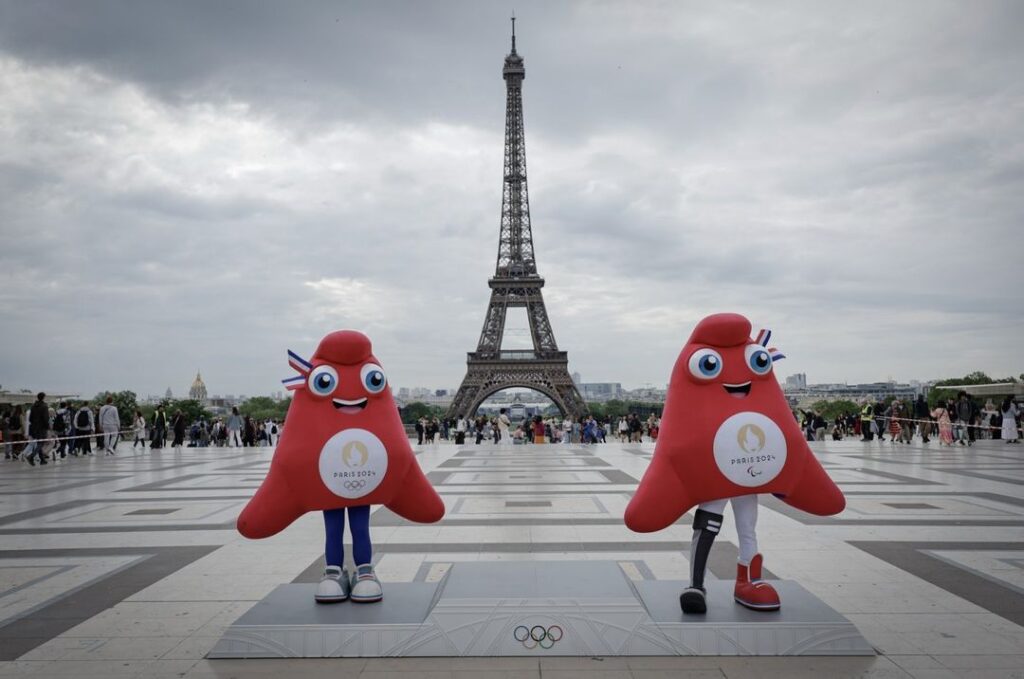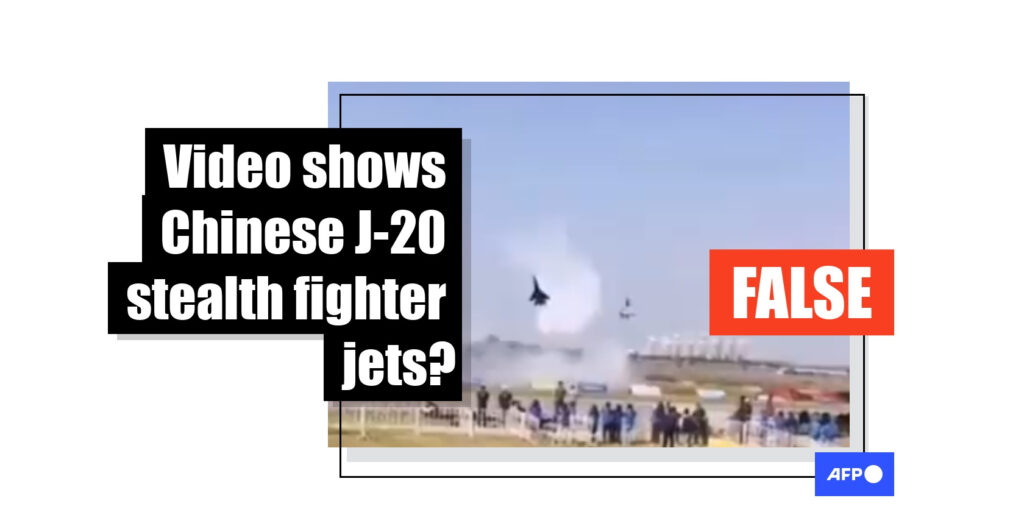Staging any truly global sporting event such as the Olympics inevitably poses formidable challenges for the host country, both organisational and reputational. And this year’s Games — held in Paris between July 26 and August 11, 2024 — are no different. The risks are manifold: possible cyberattacks, potential violence by extremists and massive demonstrations. Another urgent danger can inevitably be found in social media — false and misleading information aimed at undermining or even destabilising France. Russia, Azerbaijan and Iran are believed to be the prime suspects behind such disinformation campaigns. Moscow has vehemently denied any such interference.
In a report entitled “Russian influence efforts converge on 2024 Paris Olympic Games” published in June 2024, the Microsoft Threat Analysis Centre (MTAC) said that it had “observed a network of Russia-affiliated actors pursuing a range of malign influence campaigns against France, French President Emmanuel Macron, the International Olympic Committee (IOC), and the Paris Games”.
“Modern Russia, as well as its predecessor the Soviet Union, has a longstanding tradition of seeking to undermine the Olympic Games. If they cannot participate in or win the Games, then they seek to undercut, defame, and degrade the international competition in the minds of participants, spectators, and global audiences,” the report said.
As this year’s Olympics approach, “we all might expect Russia to increase the intensity of its influence campaigns seeking to discredit the IOC, incite fear amongst participants and attendees, and sully the image and reputation of the Paris Games.”
“Advanced influence actors sponsored by or aligned with Russia, China, Iran, or Azerbaijan are, at a minimum, using the Paris Olympics to fuel pre-existing malign influence narratives at varying degrees of scope and scale,” said cybersecurity experts from Recorded Future in a report published on June 4, 2024 (archived here).
In the past, Russia is believed to have been behind a so-called Doppelgänger network of websites impersonating established media (archived here).
In March 2024, for example, a fake AFP infographic was circulated on a Telegram account in Russian, claiming to link President Emmanuel Macron’s condemnation of the Russian invasion of Ukraine to an apparent fall-off in bookings for the Olympics. The infographic — which AFP never produced — was headlined: “Is Macron’s aggressive rhetoric jeopardising the Paris Olympics?”
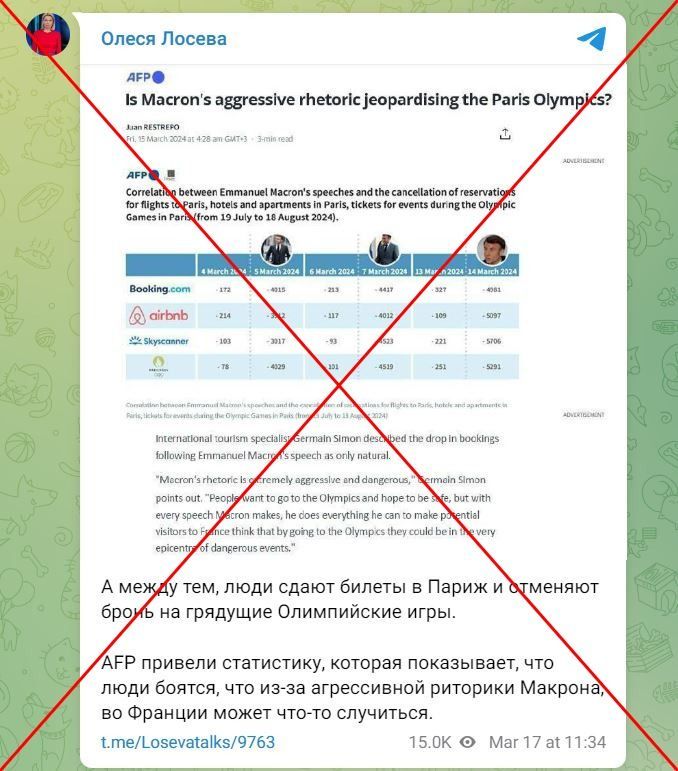
On April 4, 2024, Macron said that he had “no doubt” that Russia was targeting the organisation of the Olympic Games, “including in terms of information”, (archived here).
But on June 4, 2024, just after the publication of the MTAC report, Russia strongly denied any interference in the Games. The Microsoft report had “no basis whatsoever,” said Kremlin spokesman Dmitry Peskov. “This constitutes absolute slander and nothing more. It has nothing to do with reality” (archived here).
And the Russian embassy in Paris said in a statement that it lodged “a decisive protest against the latest Russophobic campaign unleashed by French media” and said “Russia has not interfered and does not interfere in France’s internal affairs”.
Nevertheless, it is not just Russia that is behind the disinformation surrounding the Olympics. In November 2023, Viginum, the French government agency set up to detect digital disinformation campaigns, linked a campaign to smear the 2024 Olympics to Azerbaijan (archived here).
It is not the first time that Paris has accused Baku of interference. In May 2024, for example, Viginum said it had detected manipulation by “Azerbaijani actors” of information on platforms such as Facebook and X over deadly riots in France’s Pacific territory of New Caledonia (archived here).
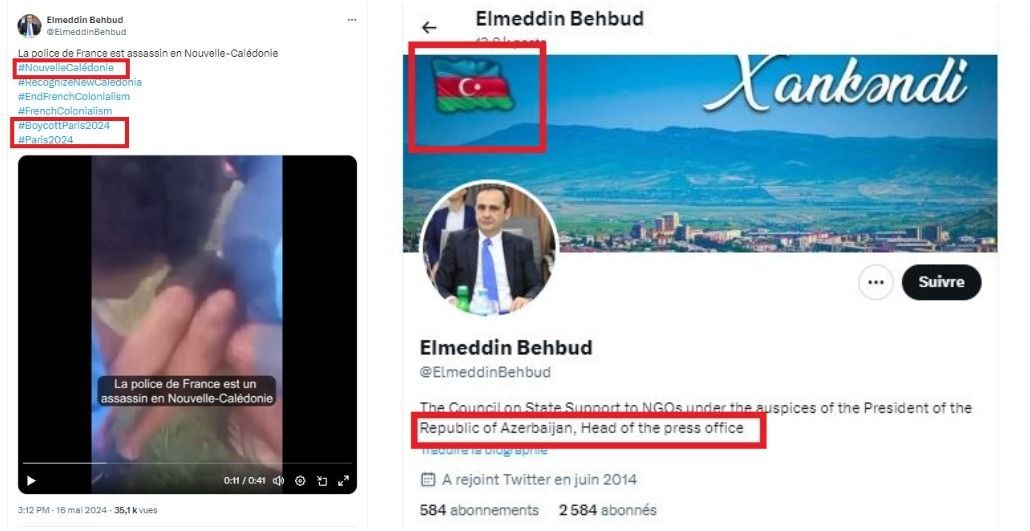
The ultimate aim of such interference and manipulation is to divide societies in Western countries and undermine public confidence in their institutions.
According to an Ifop poll conducted on February 13/14, 2024, 45% of French people have no confidence in France’s ability to organise the Olympic Games, a proportion that increases on the far-right or far-left of the political spectrum.
The armoury of weapons in the disinformation battle is wide — from video montages, to false official warnings about the risk of terrorism, fake newspaper articles, fake and even real graffiti.
“Illegal migrants are threatening to disrupt the Olympic Games in Paris. The authorities are powerlessness. Macron’s festival of vanity will pass, the problems for the French will remain”, claimed a fake article on a website made to look like Le Parisien daily at the end of April 2024, spread on various platforms, mixing real news, rumours and opinions (archived here).
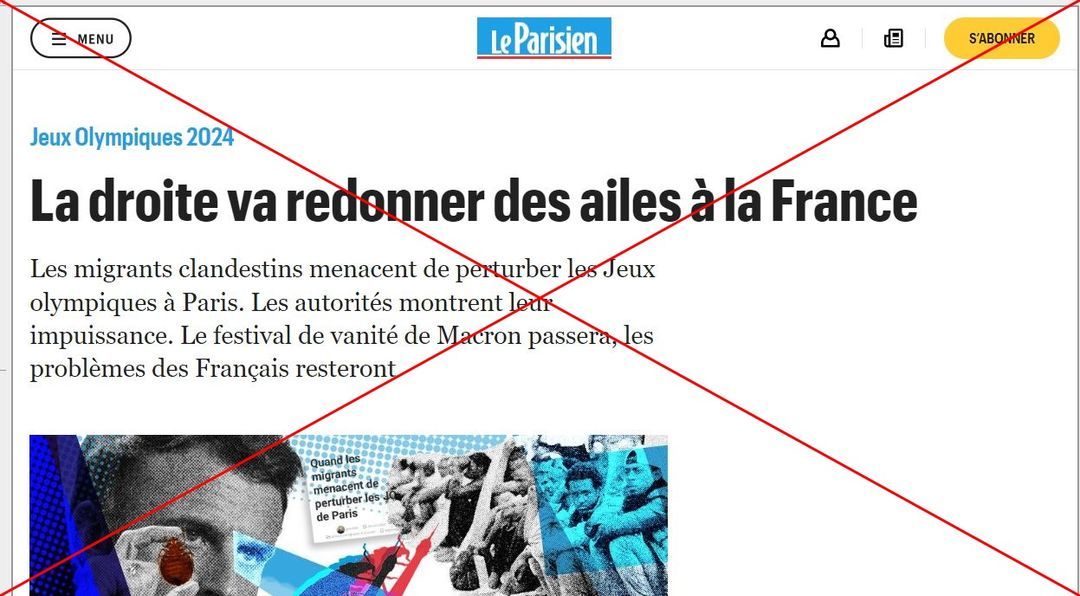
The use of fake photos of graffiti to seed political propaganda is “a unique tactic”, said cybersecurity firms CheckFirst and Reset in a report published in June 2024 (archived here) on what they dubbed “Operation Overload”, where more than 800 organisations, among which many media outlets, were flooded with emails and social media mentions urging them to verify dubious claims undermining Ukraine, France and Germany for the most part. The aim was to divert journalists’ resources, or even try to have the disinformation narratives amplified by getting fact-checkers to publish debunks.
“Street art often serves as a medium for locals to express political opinions, utilising public spaces to share ideas and perspectives… Therefore, the graffiti are conceptualised to give a false impression of local support for the Kremlin’s political agenda coming from within Germany and France.”
Some fake graffiti drew parallels between the attack on Israeli athletes at the Munich Olympics in 1972 and the Paris Olympics in 2024. Others were about the cleanliness of the River Seine, where triathlon and open-water swimming events are scheduled to be held (archived here).
For example, the graffiti of a three-eyed fish — in reference to character from the world-famous “The Simpsons” cartoon — saying “The Seine is all clean”, is said to have been sprayed on the quays in central Paris.
Visible on a Russian account on Telegram on April 16, 2024, it was also seen on TikTok in French, and was then emailed on May 9, 2024 to a number of European media asking them to verify it, according to the report by Check First and Reset.

At the same time, real graffiti have been found around the capital, warning of collapsing balconies. The stencilled images include the symbol of the Olympic rings. However, the issue is very real: earlier this year, Paris authorities did indeed debate whether to order an inspection of the balconies and balustrades of thousands of buildings lining the River Seine amid warnings they could collapse under the weight of spectators watching the Olympics opening ceremony.

According to satirical publication, Le Canard Enchaîné, police identified Moldovans as the perpetrators of these graffiti, similar to two recent incidents involving the spray-painting of Stars of David by Moldovans (archived here), and the “red hands” graffiti on the Shoah memorial (archived here) by people from Bulgaria.
In addition to long-planned operations, Russia’s influence can also be seen in other unscheduled instances, such as when social media posts claimed that official footage of an aerial acrobatic display during the Olympic flame ceremony in France on May 8, 2024, showed jets drawing colours of the Russian flag rather than the French flag, as AFP explains here.
But even without the help of foreign disseminators, other items of “fake news” have been spreading about the Olympics.
AFP reported, for example, on a video purporting to show a Paris City Hall official pouring blue dye into the Seine to hide the pollution; or on a false report by TF1 encouraging pregnant women to give birth before the Olympics.
While Russia is regarded as the dominant disinformation threat for the Paris Olympics, experts are less concerned about the threat from China.
“While Beijing maintains a formidable cadre of sophisticated state-sponsored APT (advanced persistent threat) groups, it is very unlikely to deploy these capabilities to disrupt the upcoming Paris Olympics,” said the Recorded Future report. “Unlike their Russian counterparts, there is no historical precedent for Chinese APT groups targeting major international sporting events or sporting bodies.”

